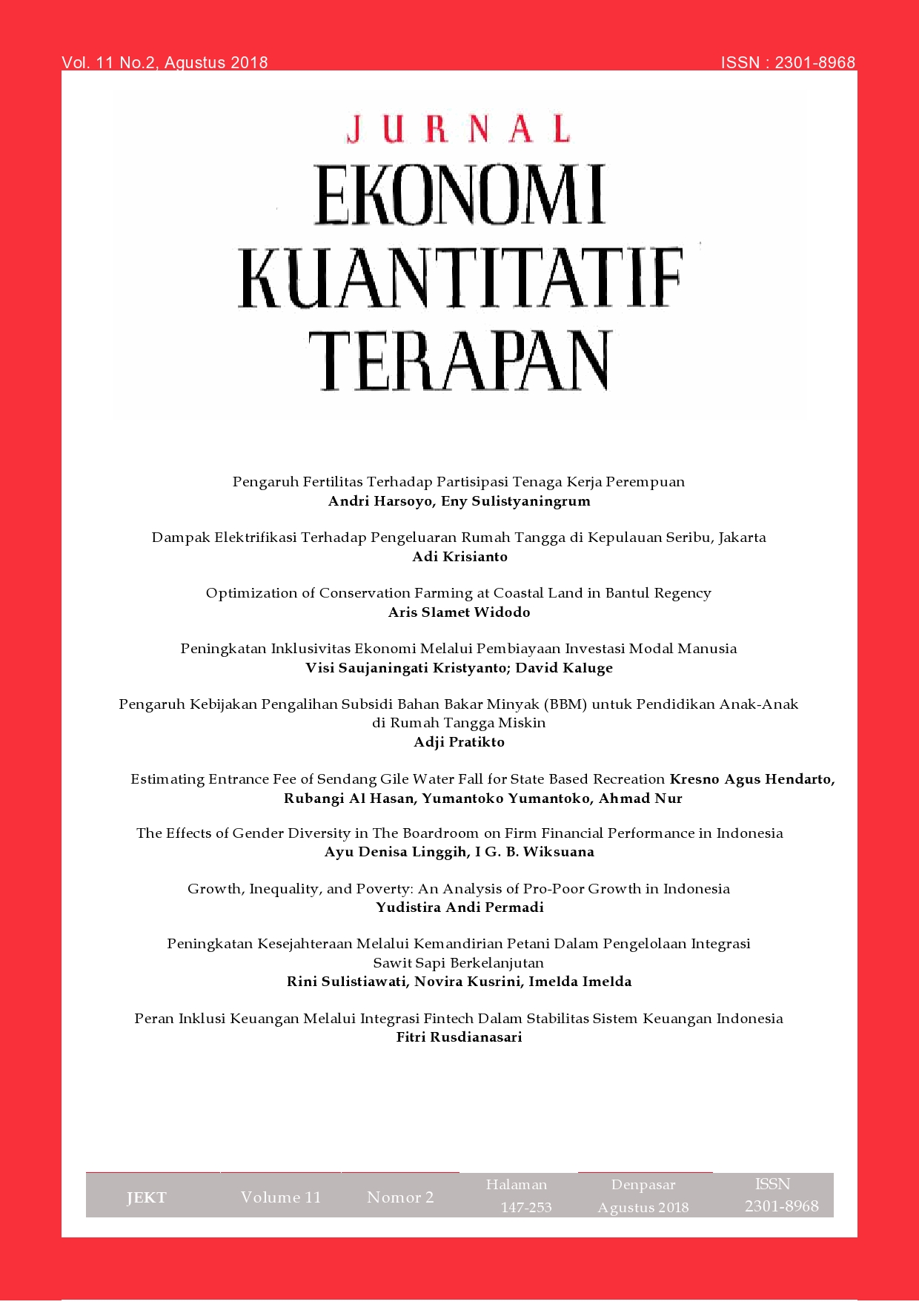Pengaruh Kebijakan Pengalihan Subsidi Bahan Bakar Minyak (BBM) untuk Pendidikan Anak-Anak di Rumah Tangga Miskin
Abstract
Education is one of the most important aspects in a person's life because it will affect his life for the better in the future. They will have the opportunity to get a better job, better marriage and so on. However, in developing countries, poverty is still one of the factors that prevent poor households from accessing education for their children. Therefore, it is necessary for the government to provide accessible education by poor households. One obstacle for governments to provide educational services is the cost of providing them. Therefore, in this research will be simulated the transfer of fuel subsidy for the provision of education services using the SUBSIM analysis tool. Based on the scenario built, it was found that the most enjoying the price of education services decline was the poor households with the highest 20% per capita consumption expenditure. They had higher education expenditure compared to other households. Therefore, the challenge of the government is how to encourage poor households to send their children for higher education
Downloads
References
Behrman, J. R., Rosenzweig, M. R., & Taubman, P. (1994). Endowments and The Allocation of Schooling in the Family and in the Marriage Market: The Twins Experiment. Journal of Political Economy, 102(no. 6), pp. 1131 - 1174.
Clements, B., Gupta, S., & Jung, H.-S. (2003). Real and Distributive Effects of Petroleum Price Liberalization: The Case of Indonesia. IMF Working Paper
Coady, D., & Newhouse, D. (Eds.). (2006). Evaluating The Distribution of The Real Income Effects of Increases in Petroleum Product Prices in Ghana. Washington DC: World Bank.
Dahl, C. A. (1993). A Survey of Oil Demand Elasticities for Developing Countries. OPEC Review, 17(winter), pp.399 - 419.
Ikhsan, M., Dartanto, T., Usman, & Sulistyo, H. (2005). Kajian Dampak Kenaikan Harga BBM 2005 Terhadap Kemiskinan. LPEM Working Paper.
Jacobs, B., Coburn, L., Lucas, N., Omote, T., Tromop, R., Linden, N. v. d., et al. (2008). Energy Policy review of Indonesia. Paris: International Energy Agency.
Mourougane, A. (2010). Phasing Out Energy Subsidies in Indonesia. Paris: OECD Publishing.
Rennings, K. (2003). Modelling Retrieved 25 July 2017, from www.liaise-kit.eu/ia-method/modelling
Suryadarma, D., & Suryahadi, A. (2010). Determinants of Education Attainment in Developing Countries: Can Higher Skills Compensate for Poverty? RAND working paper.
Verme, P., & Araar, A. (2016). SUBSIM: A user Guide.Unpublished manuscript, Washington D.C.
Widodo, T., Sahadewo, G. A., Setiastuti, S. U., & Chaerriyah, M. (2012). Impact of Fuel Subsidy Removal on Government Spending. In Y. Wu., X. Shi & F. Kimura (Eds.), Cambodia's Electricity Sector in the Context of Regional Electricity Market Integration. Jakarta: ERIA.
Yusuf, A. A., & Resosudarmo, B. P. (2008). Mitigating Distributional Impact of Fuel Pricing Reform: The Indonesian Experience. ASEAN Economic Bulletin, vol. 25(No. 1), pp.32-47.




















